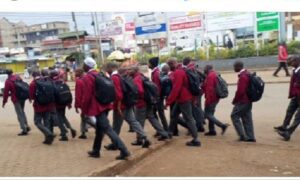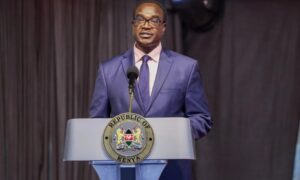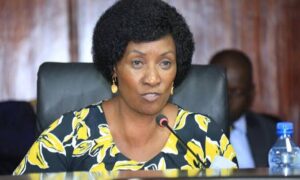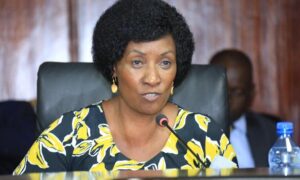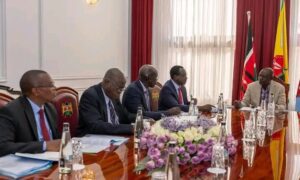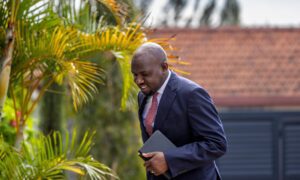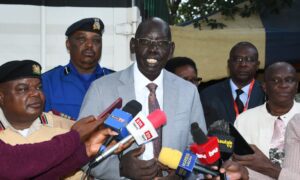The Kenya Junior School Teachers Association (KEJUSTA) has issued a strong and uncompromising warning to all aspirants eyeing positions in the Kenya Union of Post Primary Education Teachers (KUPPET) elections. In an official statement released on Thursday, September 11, 2025, KEJUSTA declared that candidates who fail to openly support the full autonomy of Junior Secondary Schools (JSS) will not get their votes.
Signed by KEJUSTA chairperson James Everns Odhiambo, the statement underscored that the autonomy of JSS institutions is not optional but an urgent necessity that must be granted without delay.
“The autonomy of Junior Secondary Schools is not just an option — it is a necessity. It must be granted now,” read the statement.
KEJUSTA further stated that teachers will no longer be swayed by empty promises, vague manifestos, or political rhetoric. Instead, aspirants must prove their leadership through concrete action and unwavering support for JSS teachers’ welfare.
KEJUSTA’s Key Demands
In the official communication, KEJUSTA outlined three core demands that every aspirant must embrace if they hope to secure the JSS teachers’ vote:
- Advocating for full autonomy of Junior Secondary Schools – KEJUSTA insists JSS institutions should operate independently with clear funding structures, proper staffing, and representation.
- Organizing and presenting JSS teachers’ demands to stakeholders – Aspirants must actively engage with education policymakers, including the Ministry of Education and the Teachers Service Commission (TSC), to ensure the concerns of JSS educators are heard.
- Financing countywide press briefings – KEJUSTA wants aspirants to support nationwide efforts to amplify the voice of JSS teachers by financing public forums, press briefings, and campaigns.
The association concluded its statement with a clear message: “Our vote is our voice — and we will use it wisely.”
Why the Push for Junior Secondary Autonomy Matters
The demand for autonomy in Junior Secondary Schools has been simmering since the rollout of the Competency-Based Curriculum (CBC) that introduced JSS as a bridge between primary and secondary education.
Currently, JSS teachers face numerous challenges, including:
- Unclear administrative structures – Many schools operate under primary heads despite having secondary-level learners, leading to conflicts in management.
- Inadequate resources – Teachers cite insufficient teaching materials, poor infrastructure, and lack of proper laboratories.
- Limited representation – JSS teachers argue that their voices are often overshadowed in education policy discussions dominated by primary and secondary school stakeholders.
- Employment and staffing issues – Thousands of JSS teachers are still serving under internship terms with no permanent confirmation, sparking frustration and uncertainty.
KEJUSTA believes that granting autonomy will empower JSS schools to directly control their budgets, management, and curriculum delivery. This autonomy, according to Odhiambo, will not only uplift teachers but also ensure learners transitioning from Grade 6 to Grade 9 get quality education in well-structured environments.
KUPPET Elections 2025: A Battle for JSS Teachers’ Support
KUPPET elections, scheduled for later this year, are expected to be highly competitive. Aspirants are already crisscrossing the country seeking support from different groups of teachers, including secondary school educators, special needs teachers, and now, Junior Secondary School teachers.
With thousands of JSS educators spread across all 47 counties, their voting bloc is seen as a game-changer. Aspirants who fail to secure JSS backing could face significant setbacks.
Education analysts note that KEJUSTA’s statement could reshape the political landscape of the upcoming elections. Aspirants will now be under pressure to outline clear policies and show practical steps toward securing autonomy for JSS.
A History of Struggle: JSS Teachers’ Frustrations
The journey of JSS teachers has been marked by repeated struggles since the inception of the Competency-Based Curriculum.
- 2023–2024 Internship Tussle – Tens of thousands of JSS teachers were employed under internship terms, sparking countrywide protests. Many decried poor pay, lack of job security, and delayed confirmation into permanent positions.
- TSC Deployment Disputes – The Teachers Service Commission faced criticism over unclear deployment procedures, with some teachers alleging favoritism and unfair treatment.
- Infrastructure Challenges – Many schools hosting JSS learners lacked proper classrooms, forcing some students to learn in overcrowded spaces or makeshift facilities.
KEJUSTA has been at the forefront of these battles, often calling out both the Ministry of Education and TSC for failing to prioritize the welfare of JSS teachers.
Experts Weigh In
Education policy experts argue that the call for autonomy is long overdue. According to Dr. Peter Mbithi, an education consultant based in Nairobi, autonomy would allow JSS schools to function more efficiently.
“Currently, JSS is stuck in a grey area — neither fully secondary nor fully primary. Autonomy will give it structure, accountability, and clear leadership. It will also motivate teachers who feel ignored in decision-making,” Dr. Mbithi explained.
The Road Ahead
With KUPPET elections only months away, aspirants now face a tough balancing act. While they must appeal to a broad base of teachers, the statement from KEJUSTA makes it clear that JSS autonomy will be a litmus test for leadership.
For KEJUSTA, the message is straightforward: teachers’ votes will only go to aspirants who demonstrate bold and practical support for their demands.
As James Everns Odhiambo summed up in the statement:
“If you want to lead us, show your leadership now — through concrete actions, not just words.”
Conclusion
The warning from KEJUSTA signals a new chapter in Kenya’s education sector politics. Junior Secondary School teachers have drawn a line in the sand, demanding respect, recognition, and autonomy.
For KUPPET aspirants, the 2025 elections will not just be about winning votes but about proving commitment to one of the most critical reforms in Kenya’s education system.
The battle for JSS autonomy is far from over, but one thing is clear — the voice of Junior Secondary School teachers is growing stronger, and this time, they are determined to use it wisely.




